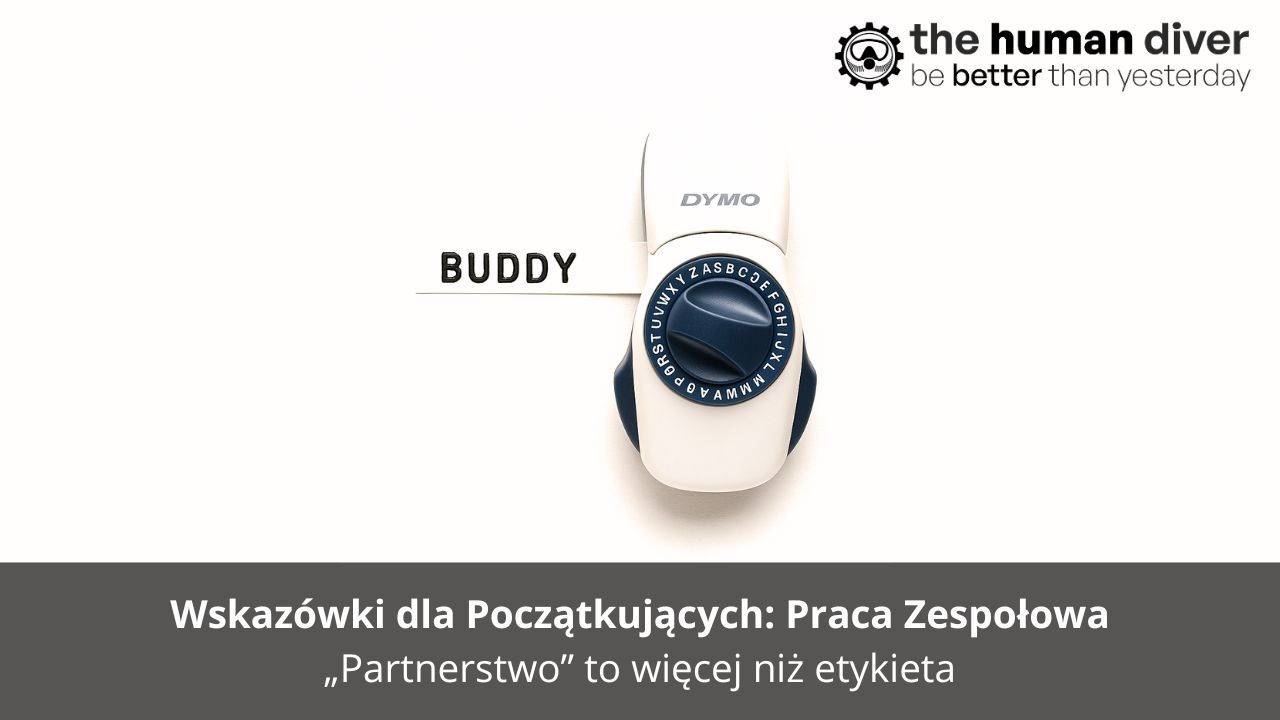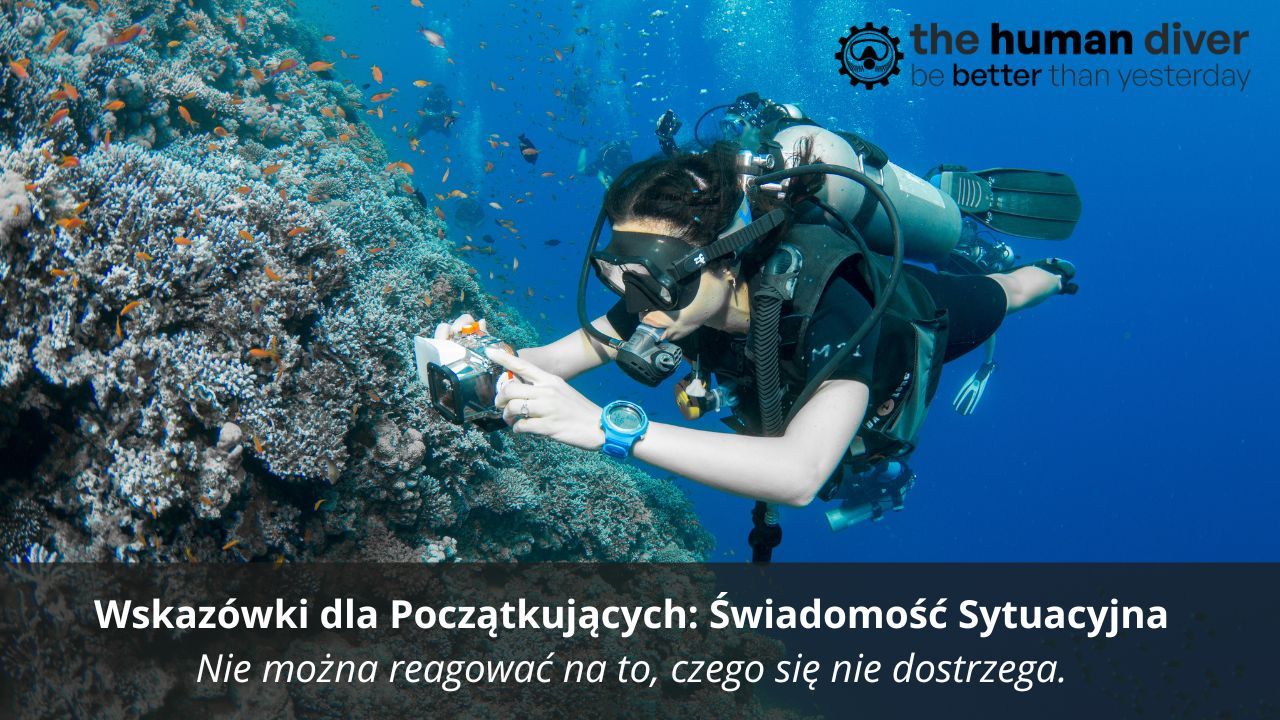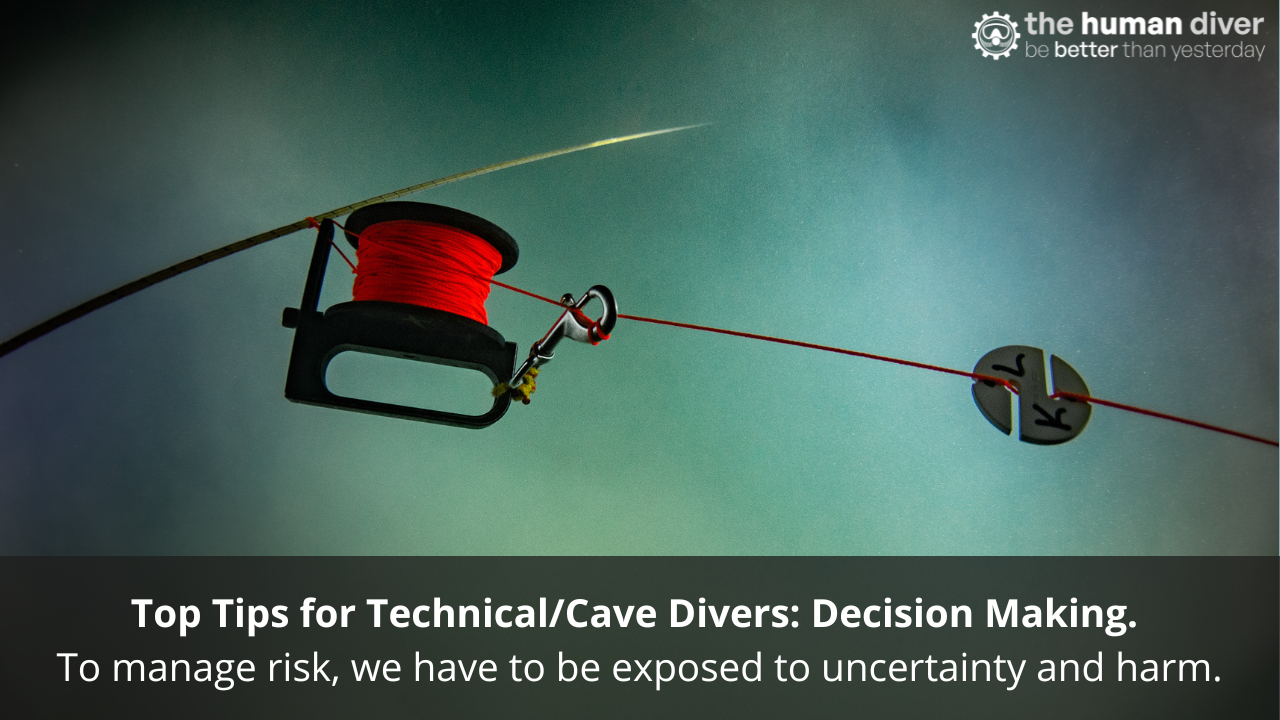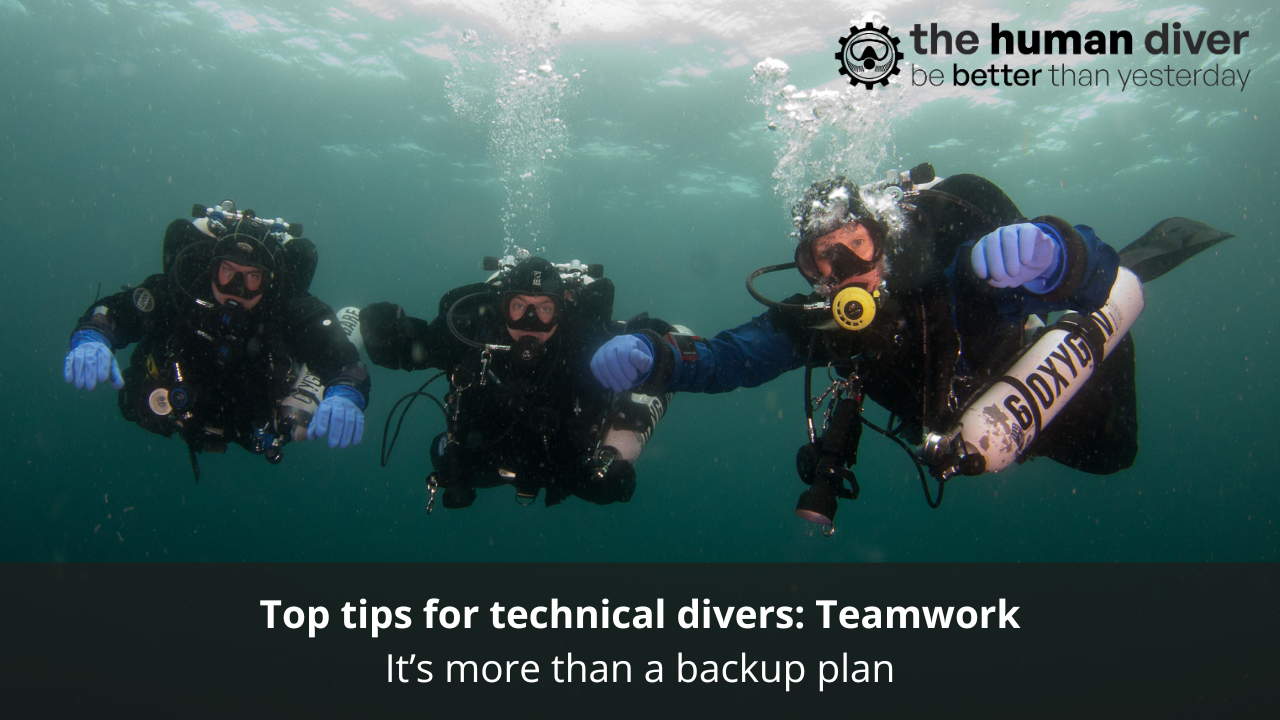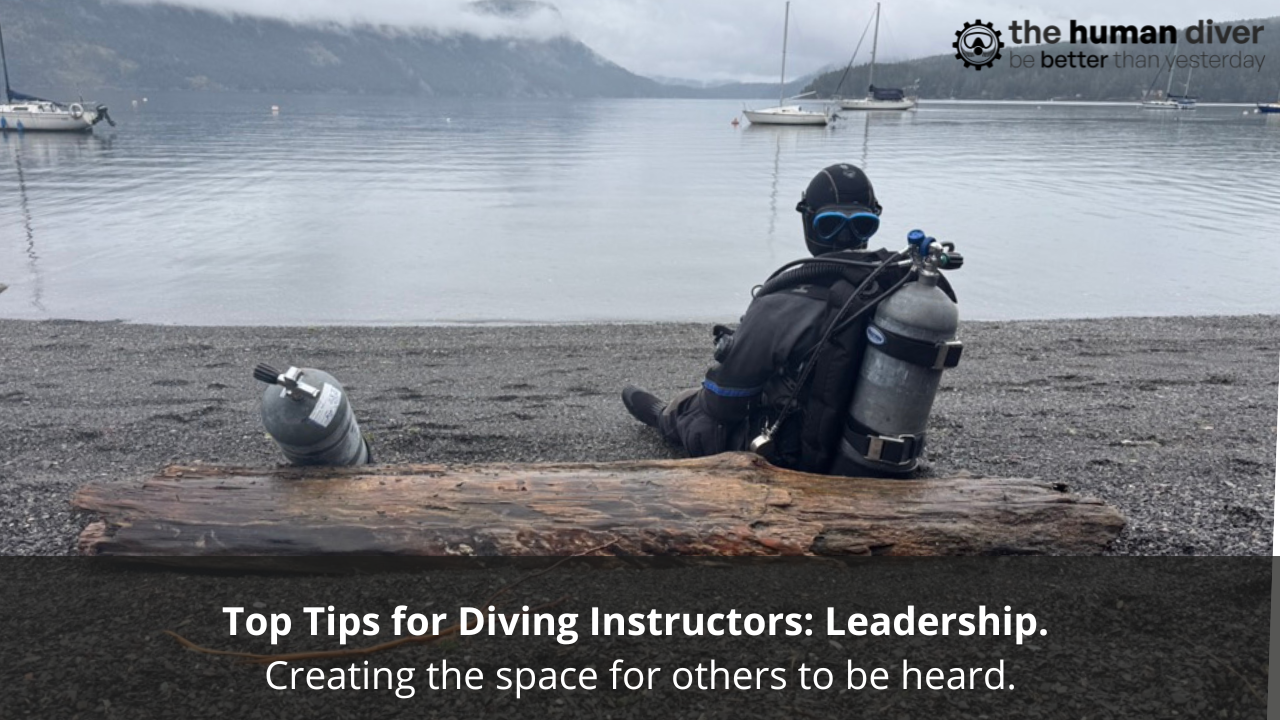
Diving Liability Insurance: Enabler or Barrier to Diving Safety?
Nov 05, 2023I’m likely going to ruffle a few feathers with this article. However, I think this may just be the most important thing I have ever written in fifteen years of writing magazine articles, blogs, and other stories in the diving world. Some articles seem to write themselves because all the parts and pieces fall into place. This was one of those occasions.
As a full-time dive professional, one of my single biggest fixed costs is my instructor insurance. Nearly all of us have watched our instructor insurance rates increase steadily over the last few years and I am about at the point where if I wasn’t doing this full-time, it might not be worth doing it at all. For many instructors who are part-time instructors only, the current rates must represent a significant percentage of their yearly instructor revenue, and for hobbyists, the costs will soon likely outweigh the benefits, and they will pull out of their instructor role. My renewal just came through a couple of weeks ago, and there were a few things that jumped out at me immediately.

I was expecting a healthy rate increase, such as we have seen over each of the past years, so imagine my surprise when my rate increase was relatively modest. This in and of itself was unusual but what was more significant was the reason my rate increase stayed low. In the correspondence between my broker and the underwriter, there was a specific sentence that stated: “taking into consideration that Guy is actively involved in offering the Human Factors course, I have kept the rate increase to our minimum”.
This caught me totally by surprise, and after some thought, I honestly believed I needed to talk about why this happened because it has significant implications for diving professionals in the not-too-distant future. By extension, then, this will also impact all divers.
Moving Human Factors from Aviation to Diving
First, I need to offer full disclose here and say that I have been an ardent supporter of Human Factors (HF) training and concepts from the first time those words were paired with “diving” and I have supported Gareth Lock’s work with “The Human Diver” (THD) from its inception. So much to the point that, recognizing the value of what he was doing, I was on the first instructor development programme run by Gareth to expand his reach to wider than where and when he could teach; four other instructors were present – one in Quebec, one in Egypt, one in Dubai, and one in the Netherlands (there are 12 in total now, 3 more on the way by March 2024). This isn’t just because I thought HF was a good idea but more because, in my previous life, I knew how important the application had been to flight safety. When Crew Resource Management (CRM) training and the application of HF concepts and practices became adopted by the aviation world, flight safety changed for the better. If you wonder why you don’t really think about “safety” when you board a commercial flight or even wonder “if you will make it”, it is because CRM and HF training have been part of the aviation world for nearly 50 years. It isn’t just aircrew and cabin crew that receive training; anyone airside, e.g., air traffic control, maintenance engineers, and ground staff, all undertake some form of recurrent and mandatory HF training. Many of the concepts that we now take for granted were novel and new half a century ago. Terms like “psychological safety”, “just culture” and "normalisation of deviance" have only recently been popping up in dive training, but they have been alive and well in the aviation world for quite a while. (They've also been on The Human Diver blogs since training started in January 2016).

In my instruction world, I have been including HF discussions and themes in my dive training for several years, and the feedback has been entirely positive. I also include at no extra charge to my students, enrollment in the online “Essentials of HF in Diving” program offered by THD and this costs me several thousands of dollars a year. At last count, over 100 of my students have benefited from this course, usually prior to attending a technical diving class. This cost, combined with my yearly fees for registering students in the online course (even at a discounted rate) has been considerable, and I never expected to see a tangible return. It was honestly enough to know that what I was doing would make a difference in much the same way that this type of skill training did for the aviation world.
It does appear, though, that things are starting to change, and there is now an unexpected return on this investment! I’ll circle back around to this later, as what may be individually beneficial to me may also be a lifesaver for the rest of the diving world… If we choose to recognize the problem and deal with it.
How Insurance Works
To understand what is happening in the dive world, we need to first understand a little about how insurance companies work. I remember overhearing a conversation one time where one businessperson was telling another that the only company that would never lose money was an insurance company. They have some very smart people who calculate risk and probability, and they can make very accurate predictions about what is likely to happen across a large group of people, and the larger the group, the more accurate the predictions can be. They can then adjust their premiums based on these predictions to maintain a particular profitability. One of the most important things is the size of the group being insured because they represent the total pool of available contributors to the pot of money that is available for insurance payouts. For example, if we use the automobile industry as an example, there are lots of drivers who pay insurance, so premiums can be kept relatively low (and stable) and it is a balance between insurance claims and payouts, insurance company profitability, and the number of contributors. Those really smart people mentioned above do some maths and presto “Joe pays x amount to insure his Ford truck for a year”.
It is important to remember that the insurance industry is a business, and like any other business, it exists to make a profit. In other words, they don’t “have to” offer insurance if there is no profit for them. The way the underwriters make money is by parlaying premiums into other investments, which generates potential revenue. (At the same time, they have very specific requirements about how solvent they must be). However, if they have to pay out regularly, they don’t have the same capital to play with and likely get penalized too. More on this later.
 Now consider the size of the pool of dive instructors in the world. It’s hardly comparable to the number of people driving automobiles! This means that fewer people are contributing to the pot of available funds which means the premiums will most likely be higher. Because each individual instructor is a larger percentage of that pool than in the automobile driver world, a claim or payout on behalf of a diving instructor has a disproportionate effect on the entire monetary pot. Automobile insurance claims happen all the time, but because of the large number of drivers in the pool, their contributions sum up to a large amount, and therefore each claim is a very small percentage of the total. Compare this to the diving world, where claims can and have been in the millions of dollars, and so significantly affect premiums and indeed, cause insurance companies to reconsider whether they even want to be in the diving insurance business at all! And there is only so much you can raise a premium before no one can afford insurance, and even if you raised it massively, it won't be enough to fill the pot. And finally, recall from above, insurance companies do not “have to” offer insurance and indeed, between three and five underwriters have already pulled out of this game in the last ten years.
Now consider the size of the pool of dive instructors in the world. It’s hardly comparable to the number of people driving automobiles! This means that fewer people are contributing to the pot of available funds which means the premiums will most likely be higher. Because each individual instructor is a larger percentage of that pool than in the automobile driver world, a claim or payout on behalf of a diving instructor has a disproportionate effect on the entire monetary pot. Automobile insurance claims happen all the time, but because of the large number of drivers in the pool, their contributions sum up to a large amount, and therefore each claim is a very small percentage of the total. Compare this to the diving world, where claims can and have been in the millions of dollars, and so significantly affect premiums and indeed, cause insurance companies to reconsider whether they even want to be in the diving insurance business at all! And there is only so much you can raise a premium before no one can afford insurance, and even if you raised it massively, it won't be enough to fill the pot. And finally, recall from above, insurance companies do not “have to” offer insurance and indeed, between three and five underwriters have already pulled out of this game in the last ten years.
Ultimately though, we need to ask ourselves what the future holds. Will premiums continue to rise until they are no longer viable? What happens when no underwriters are willing to take this on? Remember, they are a for-profit enterprise and shareholders will hardly support a business that loses money or isn’t as profitable as it could or should be. Maybe these shareholders will invest their money in something more profitable. You can’t blame them for this; it is capitalism after all…

Risk Management 101
Insurance companies deal with “risk management 101” and they follow the “four T’s”. They can Terminate risky insurance endeavors, they can Tolerate risk, they can Transfer risk, or they can Treat risk. The first two are fairly self-explanatory: terminate the risk by not offering insurance and pull out of the market, and tolerate risk, by increasing the premiums and deal with the potential losses. However, this approach is not sustainable. In a 10-year period for one insurance company, they took in $60M in premiums and paid out $180M in claims! Hardly a sound business model.
However, most insurance companies are in the game of transferring risk. Treating risk would be the best thing to do, but remember where I said that insurance companies don’t have to do anything – they also have very limited control over who they are insuring and what they are doing when it comes to the diving industry. Inside the industry, it is recognized there is a huge variance in the quality of delivered programmes given the surface-level quality management systems that are in place by the agencies to meet a global standard. In some cases, it is just easier for the insurance companies to walk away from the problem and focus on something else.
Diving agencies have chosen to “air gap” themselves from this whole issue ("isolate ourselves from the risk") and require that their instructors maintain their own liability insurance. Indeed, there are some examples of agencies literally throwing their instructors under the bus in an attempt to avoid litigation directed at themselves. There is also evidence to suggest that litigation is on the rise in the diving world and discussions between Gareth Lock, Owl Underwriting, and legal professionals over the last 12 months support this. Instructors are forced into a role of compliance because they are afraid of litigation, even if this provides an illusion of safety. Furthermore, because no one wants to write anything down of substance in an accident or incident report in case it ends up in court or share near-miss stories when things don’t have a severe outcome, learning from accidents or incidents is seriously limited. Gareth Lock’s current research project has identified numerous systemic and organizational issues that limit the possibility of learning within the diving community, and this research will be published in Q1 2024.

What does the future hold?
From the outside looking in, it doesn’t appear that the dive agencies understand what is happening, and they continue to operate as if there was nothing wrong. This might be because there is an expectation that there will always be instructors who want to join the system. This is equivalent to an ostrich sticking its head in the sand and hoping the predator leaves. The insurance industry, however, is operating from the perspective of a for-profit business with resources that are orders of magnitude greater than all the dive agencies put together. They are acting on data and hence the increases in premiums and withdrawals from the underwriting business for more than five organisations. There is currently one option for some instructors that seems to have a reasonable price structure however, insurance industry professionals see this as a case of “you get what you pay for” and suggest that even this option is going to stabilize, and when it does, it will be at a much higher rate because it is not sustainable at the current level of premiums.
Some might suggest that it is the role of the underwriter to help the industry become safer, but I would counter that with the simple question “why?” Insurance companies don’t do this for the automobile industry, so why would they do it for the dive industry? Insurance companies offer rewards and consequences, that is it. If you drive safely you may receive a discount, but speed or demonstrate other unsafe behavior on the road and you’ll see your rates increase. Insurance companies are not charities and as I have mentioned several times above, they are for-profit businesses that operate according to market forces and the tenets of capitalism.

So where does Human Factors fit into this picture?
Here it is useful to look at two examples from the aviation world and draw some comparisons. The first relates to the adoption of CRM programmes by airlines where the governing body stated that to be part of the International Air Transport Association (IATA) they needed to have a Crew Resource Management (CRM) programme in place. The second relates to air traffic management in the UK where the insurance company was heavily involved in developing and supporting systems which reduced the likelihood of airspace infringement and airprox (near miss). Neither of these interventions was solely responsible for the reduction in near-misses and accidents because that is not how complex systems work, but they certainly contributed to improvements in safety by being able to predict, identify, and trap errors before they led to a catastrophic outcome. These programmes took a systems perspective of the problem, applying double-loop learning and not just fixing the individual errant pilots via single-loop learning. Of note, these programmes did not take a ‘sheep-dip’ once-only approach, but continuous training and updates were needed.
Some parts of the insurance industry recognize the value of HF training in the diving world much as they did in the aviation world - my modest premium increase because I am involved in HF training demonstrates this. Conversations with Gareth Lock indicate that I am not the first insured party that this has applied to either. HF training focuses on the need to develop learning systems and not focus on blaming individuals for their ‘incompetence’ - this is what helps make the industry safer. Insurance companies understand this and are doing what they can to reward those instructors who make the extra effort to take HF training. My example is concrete evidence of the value of HF training, and it directly affected my pocketbook. Because diving agencies have air-gapped themselves from liability, they have no real incentive to mandate initial and continual HF training for their instructors. However, if instructors can’t get insurance or it proves prohibitively expensive to do so, then agencies will no longer exist. It should be obvious that fewer instructors or fewer training agencies will have a direct effect on the total number of divers, which in turn affects diving manufacturers, dive travel operators, dive resorts, and any other industry that is part of the diving world. This demonstrates the need to take a systems view of the problem, and not a parochial stove-piped perspective which is based on ‘every man for themselves’. Care must be taken that any HF programme isn’t just a box-ticking exercise but needs to be built into the fabric of diving instructor training and diver development, and ‘fun’ diving outside the training system. The culture of learning starts with the training agencies but needs to continue outside the training system as this is where the majority of diving happens.
It is unlikely that anything will change until the instructors themselves see the direct value of HF training and, to paraphrase one insurance company executive, “the only thing that seems to get anyone’s attention is increased premiums”. This can’t and won’t go on forever, and as I wrote above, it may simply become easier to remove themselves from the diving industry altogether, and you can’t really blame them. If we don’t make an attempt to help ourselves, why should they have to help us?

Finally, I was reminded of Gareth Lock's presentation at Rebreather Forum 4 (slide above, video here) in which he described the need for a politically-relevant event before change can happen. Maybe, this is the politically relevant event?
Guy Shockey is one of the Human Diver instructors. He is also a GUE Tech 2 & CCR 2 instructor operating from Vancouver Island, CA. You can find more about him and his courses here The Human Diver resumé and GUE Instructor Resumé
Want to learn more about this article or have questions? Contact us.


